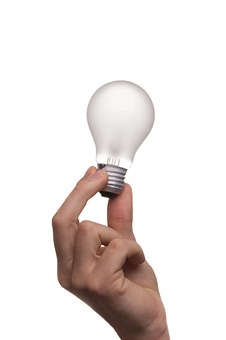 Let’s talk about energy efficiency.
Let’s talk about energy efficiency.
From one similar household to another, energy consumption can vary as much or even more than 200%.
Using more than double the amount of electricity in one household that is required in a similar household is more than likely not being energy-efficient.
Some household’s electricity is wasted on TVs and gaming machines, that are ritualistically left on all day every day, can be responsible for as much as 30% of a household’s electricity consumption.
In many countries around the world governments are encouraging electricity consumers to purchase and use more energy-efficient appliances by providing rebates and tax incentives, however you can take a horse to water but you can’t make him drink.
If you have the opportunity to be involved in upgrading your electrical appliances to more energy-efficient ones with a little financial incentive and why not, but you can have a significant impact on your bill in other ways as well without any outlay.
The most expensive electricity that anyone can ever buy is the electricity that they never needed in the first place. It is by definition superfluous to their needs and not only is the purchase of this electricity an unnecessary financial burden, but it places a huge strain on infrastructure and other resources.
Imagine if everyone in every country could halve their electricity consumption overnight, or even reduce it by 50% or 20% or even 10%, how good that would be for the consumer and the supplier.
Very frequently our household operates on a day requiring as little as 3 kWh of electricity. To put that in perspective, similar homes with the same number of people, can consume 15 kWh to 25 kWh per day. Those households are using way more than 200% more electricity than what we consuming and very frequently it is poor habits that is the culprit for this unnecessary over consumption.
Should such a household decided to go on an “electricity diet”, then they may use significantly less for a little while, but old habits die hard and generally within a short amount of time the homes electrical consumption would return to where it was to start with.
Our home is orientated correctly, has had window types and sizes well thought out and positioned, has well-placed thermal mass and appropriate insulation for the area in which we live and we have selected the most efficient energy sources for our needs. 25 years ago we considered these factors keeping the outcome we wanted in mind and designed and built a home accordingly.
I realise that not everyone has this luxury, however, what this means is that our biggest consumer of energy within our household, which is our refrigerator, exists in an environment where it can function much more efficiently than it could if it were placed in a home that was not so cleverly built.
Having a thermally efficient home obviously will help you save electricity on cooling and heating including the running of your refrigerator. Now whilst retrofitting can make a big difference to a poorly designed home’s energy performance, a significant contributor to saving electricity are the habits of the inhabitants within the home.
Someone who may seriously want to reduce their electricity consumption may decide to go on an “electricity diet” but I fear they will have similar success to someone who wants to lose weight and goes on a diet. When you come off the diet and go back to consuming what you normally did in the past, the same situation will rear its ugly head once again.
To be successful, going on a diet for any period of time will never work.
To be successful, what is required is a lifestyle change, where what you would consume when you were on your diet becomes a way of life. Simply changing your habits to be more energy-efficient is something that everyone can do immediately and when that develops into a lifestyle it will be clearly seen on the electricity bill.
Whilst you may not have the luxury of a thermally efficient house, adopting a power
saving lifestyle will reduce your electricity consumption by 10%, 20% or even 50%
before you even spend a cent updating your electrical appliances >LEARN MORE>>
With an ageing infrastructure for electricity transportation and more and more people fitting solar panels on the roof to reduce their households demand for grid electricity, the price of main electricity is not going to come down.
Knowing this and deciding to adopt more energy-efficient habits sooner rather than later is in every household’s best interest.
John Lynn
www.suburbanoffgridliving.com

